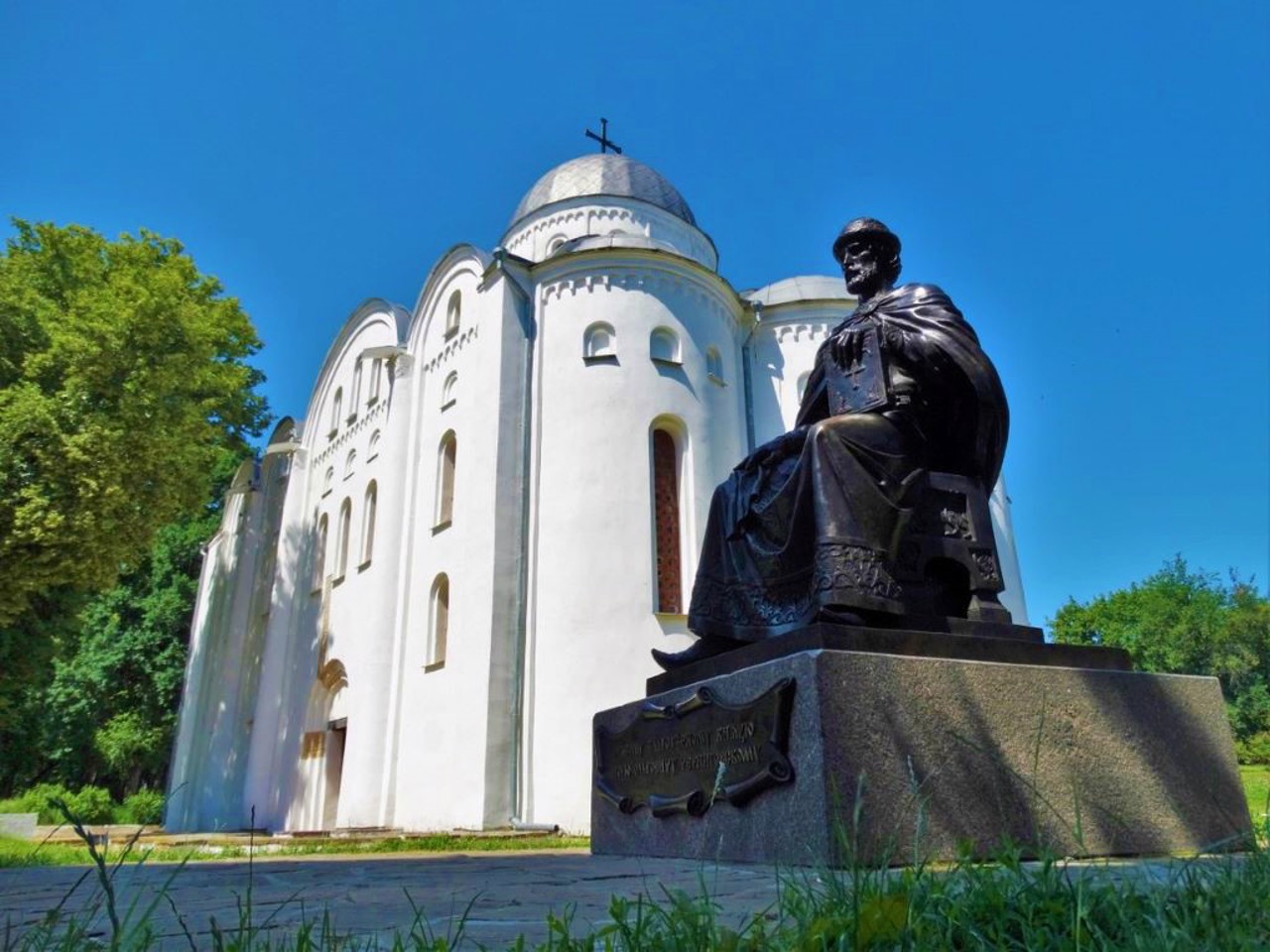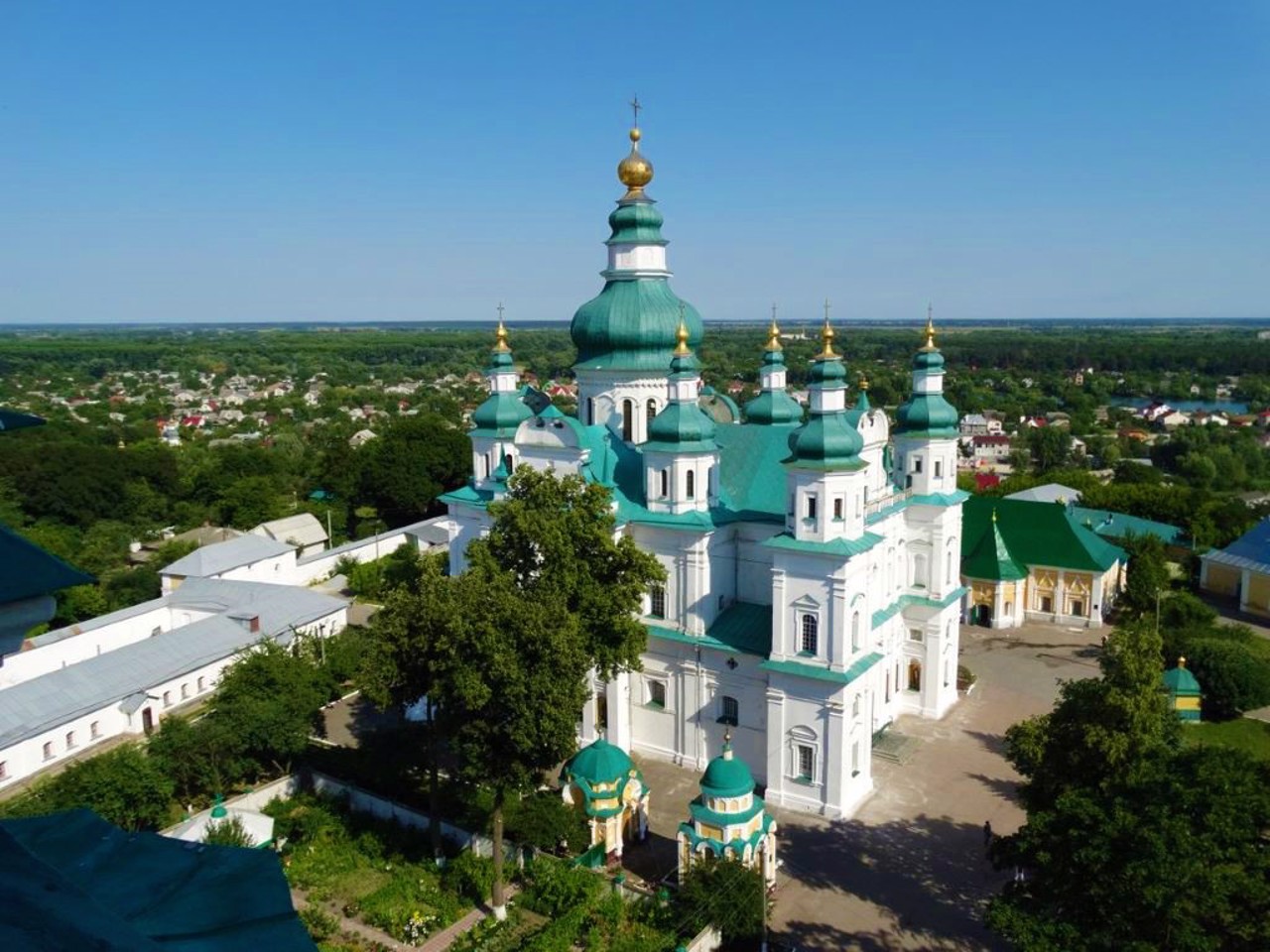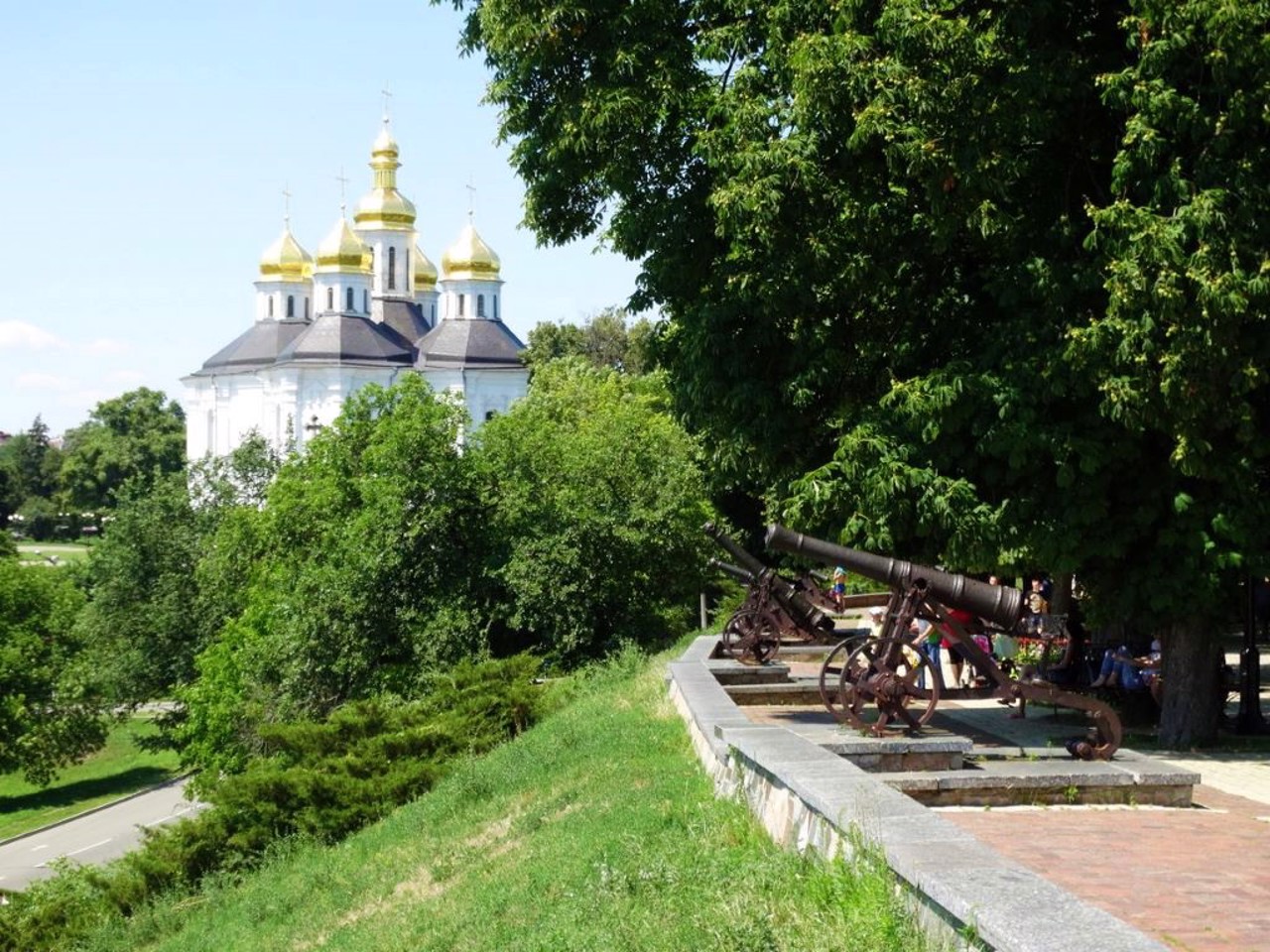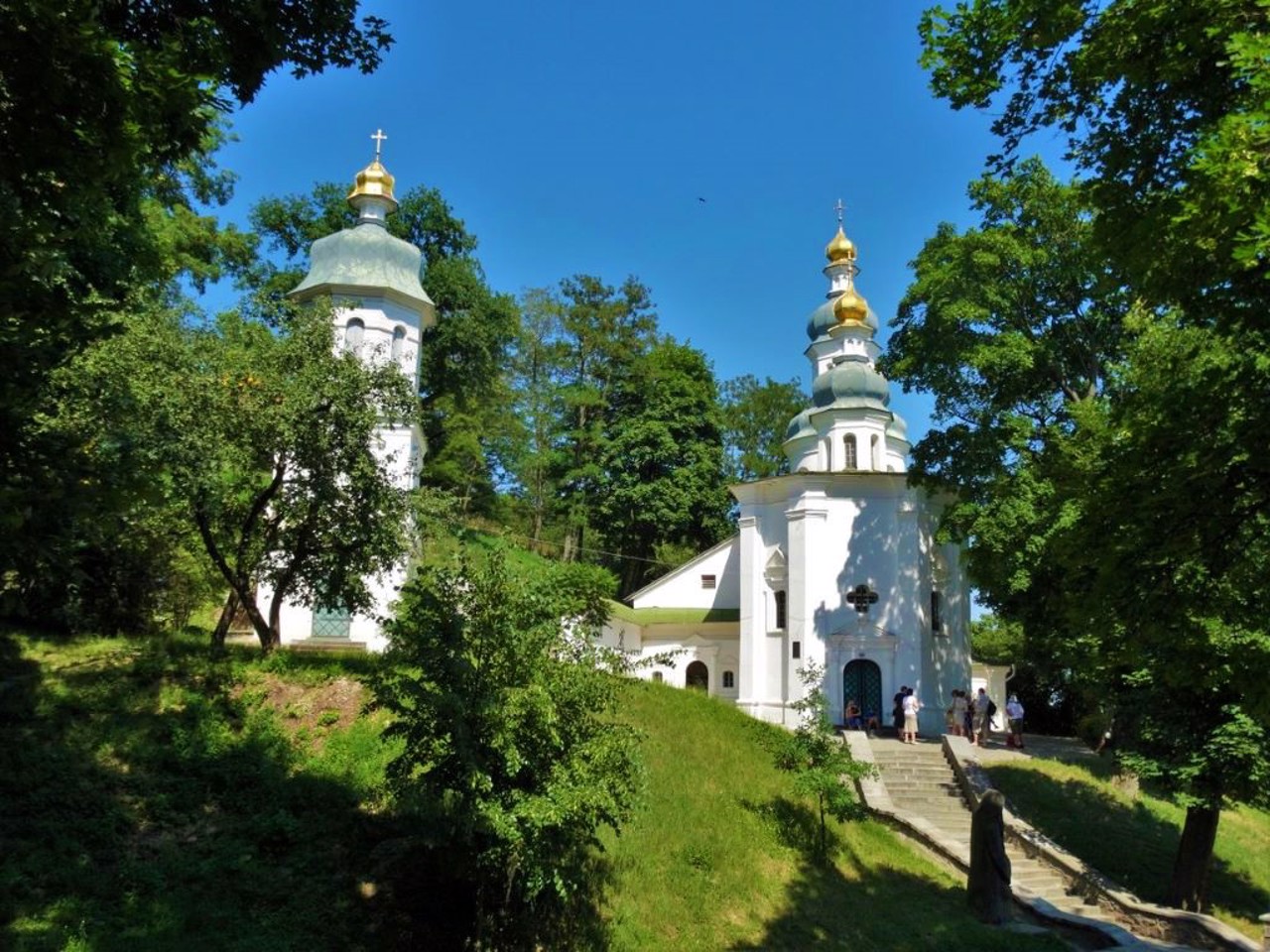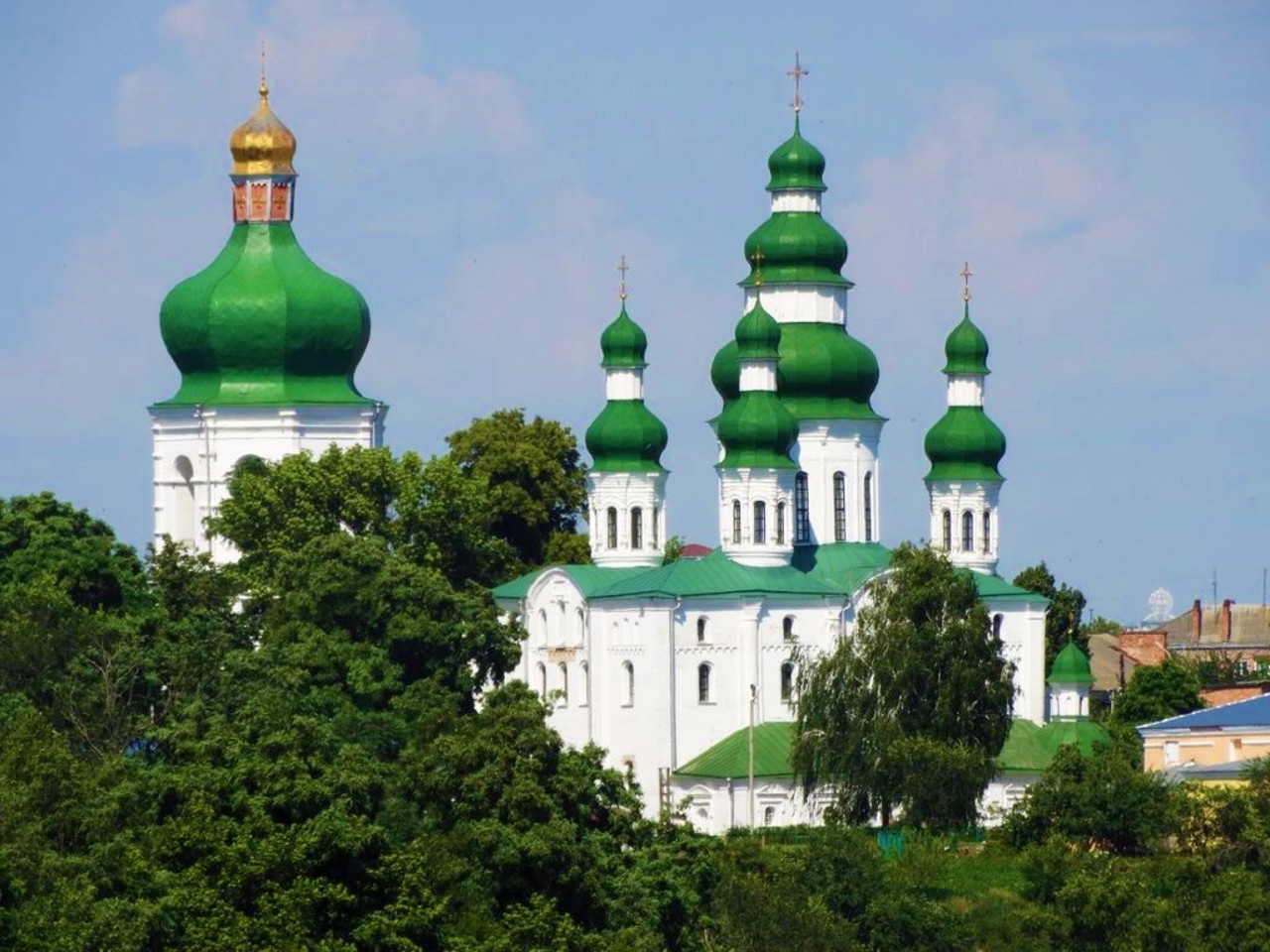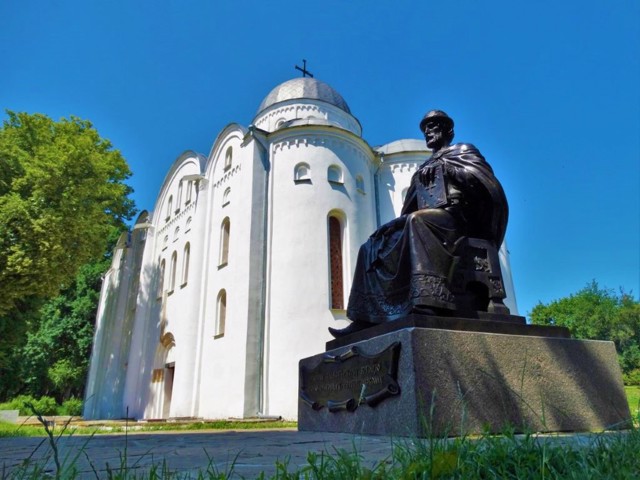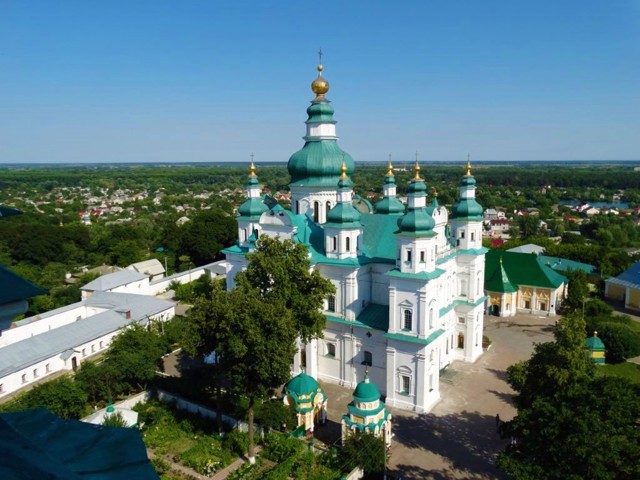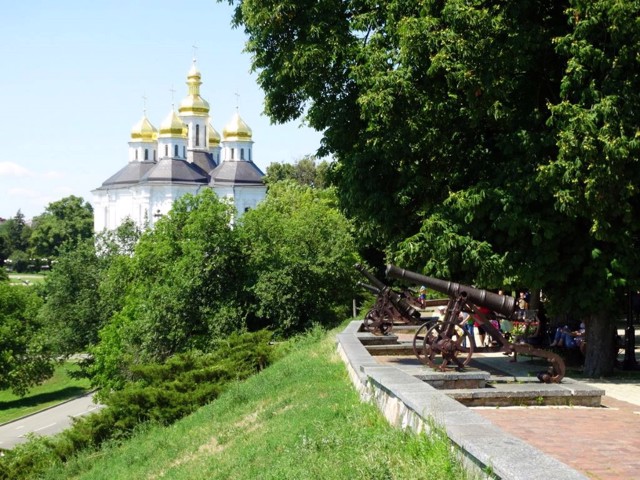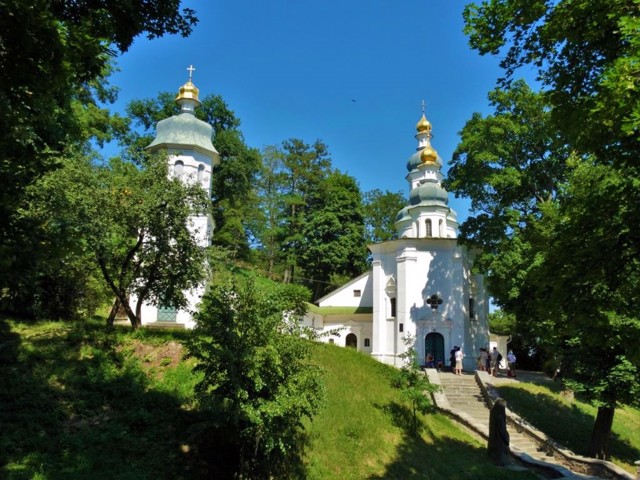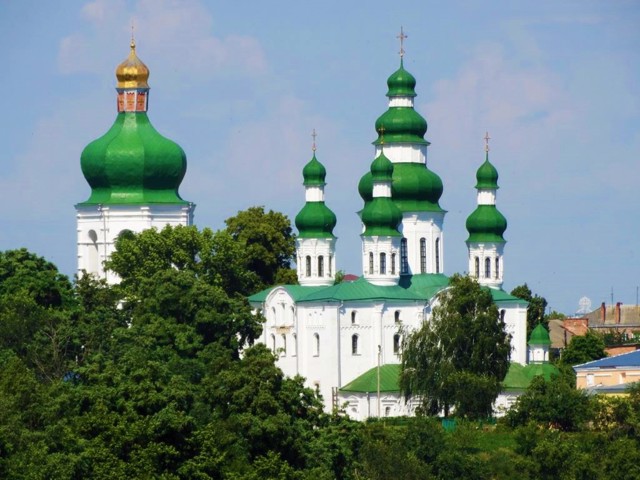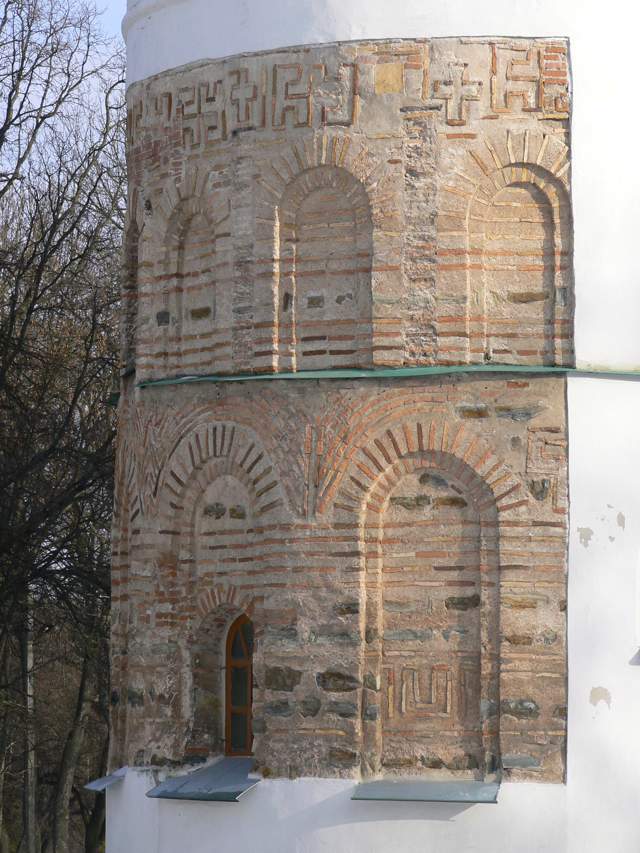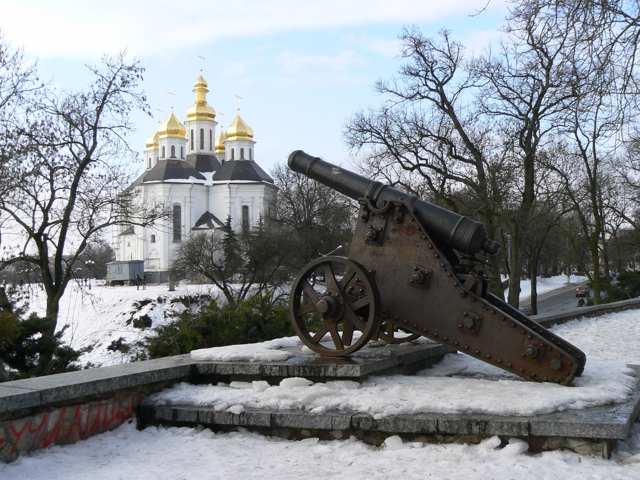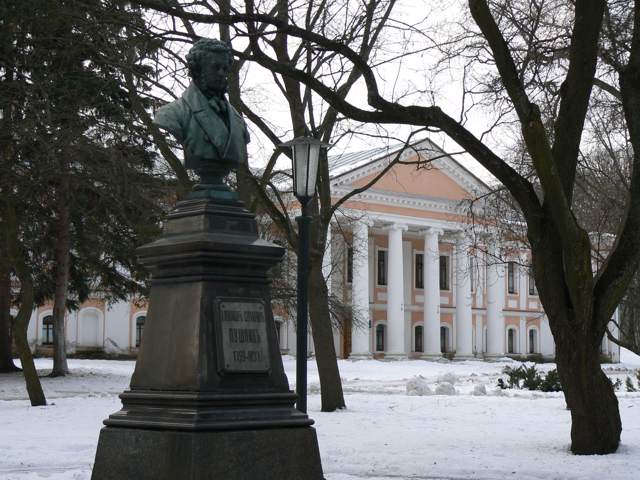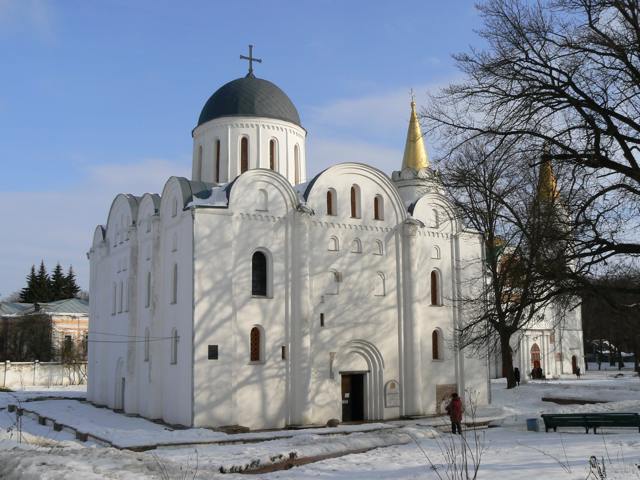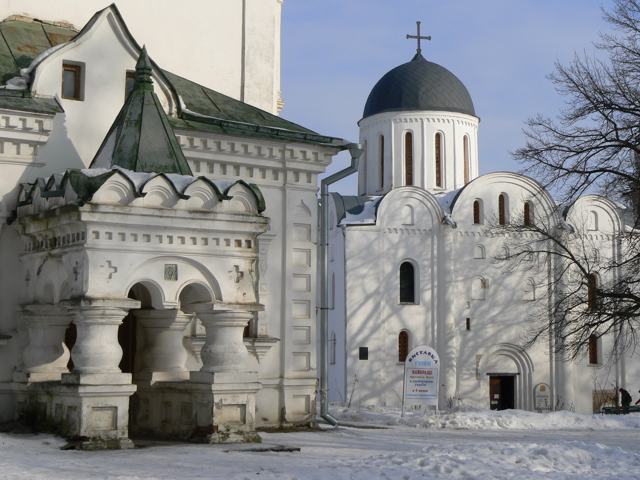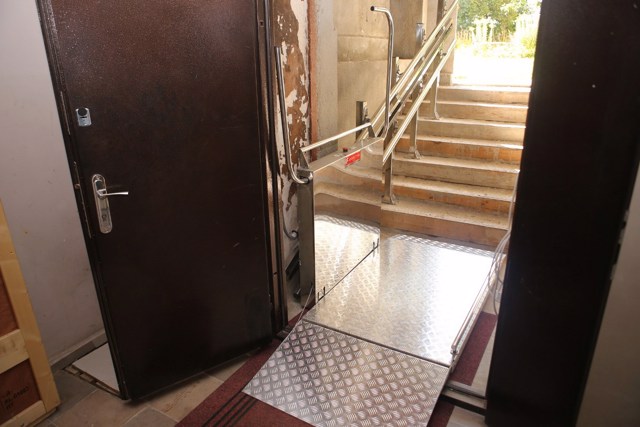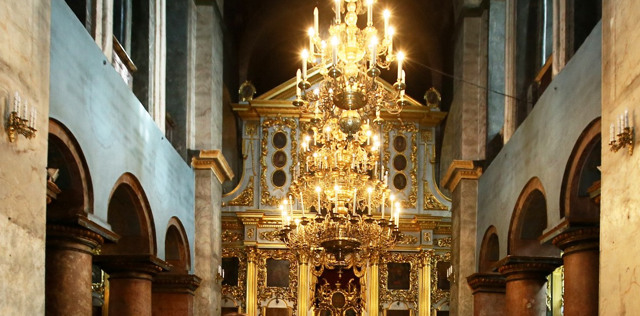Functional temporarily unavailable
General information about Chernihiv
The princely city of Chernihiv is an ancient city on the right bank of the Desna River.
It arose in the 7th century on the site of early Slavic settlements, later becoming the center of the Chernihiv principality. According to legend, it was founded by Prince Chorniy. Historians associate the name of the city with the name of the Siverskyi prince of Chernihiv.
At the end of the 9th century, when Prince Oleh of Kyiv conquered the Severians who lived along the Desna River, the city became part of Kyivan Rus. In 907, Chernihiv was first mentioned in the annals. In 1239, the city was destroyed by the Mongol-Tatars. During the Lithuanian rule, a fortress was built on the site of the prince's baby. As part of Russia, Chernihiv became a provincial center.
Now a quarter of ...
The princely city of Chernihiv is an ancient city on the right bank of the Desna River.
It arose in the 7th century on the site of early Slavic settlements, later becoming the center of the Chernihiv principality. According to legend, it was founded by Prince Chorniy. Historians associate the name of the city with the name of the Siverskyi prince of Chernihiv.
At the end of the 9th century, when Prince Oleh of Kyiv conquered the Severians who lived along the Desna River, the city became part of Kyivan Rus. In 907, Chernihiv was first mentioned in the annals. In 1239, the city was destroyed by the Mongol-Tatars. During the Lithuanian rule, a fortress was built on the site of the prince's baby. As part of Russia, Chernihiv became a provincial center.
Now a quarter of all architectural monuments of Ukraine from the pre-Mongol period are concentrated here. The historical core is the Val - the remains of the defensive structures of the cub and the Chernihiv fortress, where the oldest temples are located. The most valuable sacred monument is the Anthony's Caves (XI century), which are part of the Trinity Monastery complex. The emergence of the Dormition Monastery in Yeletskyi belongs to the same times.
A large number of sights, a quiet provincial atmosphere and the development of tourist infrastructure make Chernihiv attractive for a weekend tour.
Chernihiv City Day is celebrated on September 21.
Княжий град Чернігів - древнє місто на правому березі Десни.
Виникло в VII сторіччі на місці ранніх слов'янських поселень, ставши згодом центром Чернігівського князівства. За легендою, було засновано князем Чорним. Історики пов'язують назву міста з ім'ям Сіверського князя Черніги.
В кінці IX століття, коли київський князь Олег підкорив сіверців, що жили за течією Десни, місто увійшло до складу Київської Русі. У 907 році Чернігів вперше згадується в літописі. У 1239 році місто було зруйноване монголо-татарами. Під час литовського правління на місці княжого дитинця була побудована фортеця. У складі росії Чернігів став губернським центром.
Зараз тут зосереджена чверть всіх архітектурних пам'яток України домонгольського періоду. Історичним ядром є Вал - зал ...
Княжий град Чернігів - древнє місто на правому березі Десни.
Виникло в VII сторіччі на місці ранніх слов'янських поселень, ставши згодом центром Чернігівського князівства. За легендою, було засновано князем Чорним. Історики пов'язують назву міста з ім'ям Сіверського князя Черніги.
В кінці IX століття, коли київський князь Олег підкорив сіверців, що жили за течією Десни, місто увійшло до складу Київської Русі. У 907 році Чернігів вперше згадується в літописі. У 1239 році місто було зруйноване монголо-татарами. Під час литовського правління на місці княжого дитинця була побудована фортеця. У складі росії Чернігів став губернським центром.
Зараз тут зосереджена чверть всіх архітектурних пам'яток України домонгольського періоду. Історичним ядром є Вал - залишки оборонних споруд дитинця та Чернігівської фортеці, де знаходяться найдавніші храми. Найцінніша сакральна пам'ятка - Антонієві печери (XI століття), що входять в комплекс Троїцько-Іллінського монастиря. До тих же часів відноситься виникнення Успенського Єлецького монастиря.
Велика кількість пам'яток, тиха провінційна атмосфера та розвиненість туристичної інфраструктури роблять Чернігів привабливим для туру вихідного дня.
День міста Чернігова відзначається 21 вересня.
Сплануй своє перебування у Chernihiv
What to see and where to go in Chernihiv
Tourist attractions and museums of Chernihiv
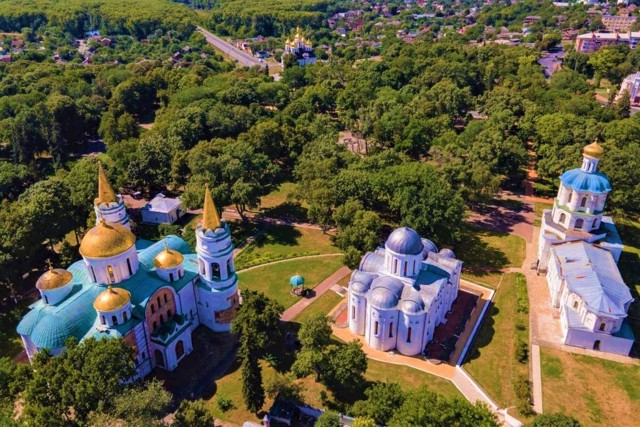
Chernihiv Rampart (Dytynets)
Historic area , Park / garden , Archaeological site
Chernihiv Rampart (Val) is the oldest part of the city, a hill on the high bank of the Desna River, where the fortified princely detynets (hillfort) and a complex of other defensive structures of medieval Chernihiv were located.
Remains of princely temples and boyar residences were discovered here. Two churches of the XI-XII centuries, the later building of the Collegium (1700), the Regimental Office (XVIII century), known as the "Lyzohub stone house", other buildings of the XVIII-XIX centuries have been perfectly preserved.
After the liquidation of the Chernihiv Fortress in the 19th century, the defensive rampart over the river was converted into a park area, and monuments to Taras Shevchenko and Pushkin were installed (dismantled in 2022 during the active de-Russification of Ukraine, which began as a result of the Russian invasion of Ukraine).
There are 12 cast-iron bastion cannons of the 17th century on the Chernihiv Rampart, which are considered the hallmark of the city. On the site near the central entrance to the Val, a model of the Chernihiv fortress of the early 18th century and four bronze sculptures - of Prince Mstyslav, Nestor the Chronicler, Lazar Baranovych and Martyn Nebaba - are installed.
Chernihiv Detynets with its historical and architectural monuments is a key part of the National Architectural and Historical Reserve "Ancient Chernihiv".
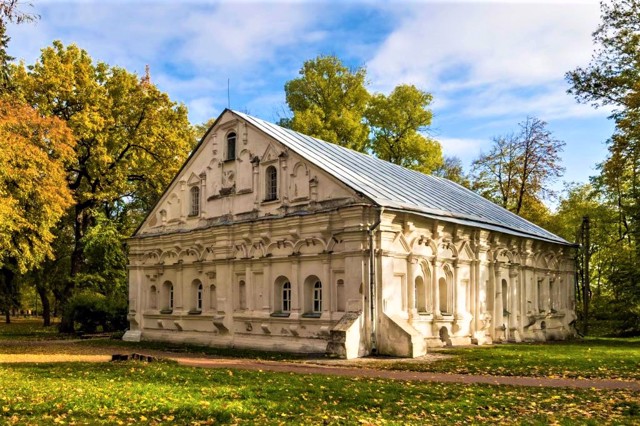
Regimental Chancellery (Mazepa House)
Architecture
The building of the Chernihiv Regimental Chancellery, also known as "Mazepa House" or "Lyzohub Stone House", is located on Rampart (Val) in Chernihiv.
The building on the territory of the Chernihiv Fortress was built by Colonel Yakiv Lyzohub, then it belonged to Hetman Ivan Mazepa, then it served as a regimental chancellery, a city hall, and an archive. The only monument of residential architecture of the 17th century in Chernihiv with well-preserved rich decorative decoration of the facades.
Now the building of the Chernihiv Regimental Office is part of the National Reserve "Ancient Chernihiv". It houses the collections of the Chernihiv Historical Museum.
The legend about the ghost of Motrya Kochubey, who was cursed by her mother for having a sinful relationship with Hetman Mazepa, is connected with the "Mazepa House".
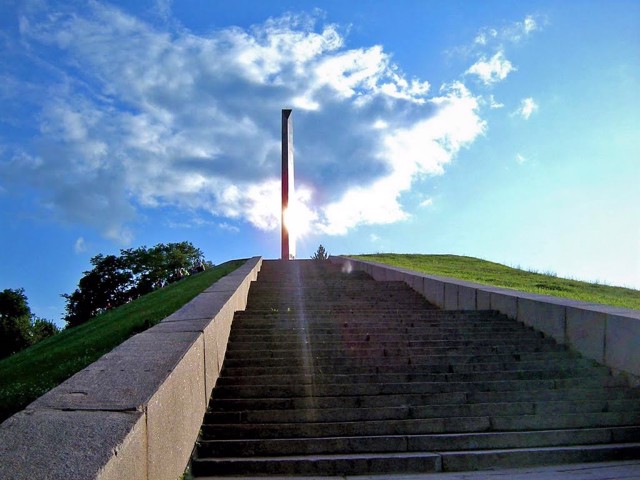
Boldyni Hills
Archaeological site , Historic area
The historical area known as Boldyni Hills is located 1.5 kilometers southwest of Chernihiv Dytynets. This is a chain of hills from 20 to 35 meters high, which in ancient times were covered with oak forest (the ancient Rus word "bold" means "oak").
Boldyni Hills is part of the National Architectural and Historical Reserve "Ancient Chernihiv".
Since pagan times, Boldyni Hills have had an important sacred meaning. Here is one of the largest Old Rus burial mounds, numbering over 200 burial mounds dating back to the 9th-10th centuries. The largest of them are Gulbyshche and Bezimennyi.
With the advent of Christianity, Saint Anthony's Caves appeared on the slopes of the mountain, and the Trinity-Elijah Monastery with the Holy Trinity Cathedral was founded. During Soviet times, a monument to the Unknown Soldier was erected on Boldyna Mountain with the Eternal Flame at its foot.
Now the hills are home to the park-monument of local landscape art "Boldyna Hora". Monuments have been erected on the graves of the Ukrainian writer Mykhailo Kotsiubynskyi and the Ukrainian folklorist and ethnographer Opanas Markovych.
In March 2022, during the Russian-Ukrainian war, Boldyna Mountain was shelled by Russian troops. As a result of a Russian shell hit, a gazebo was destroyed, which was installed at the beginning of the 20th century before the arrival of the Russian Emperor Nicholas II in Chernihiv.
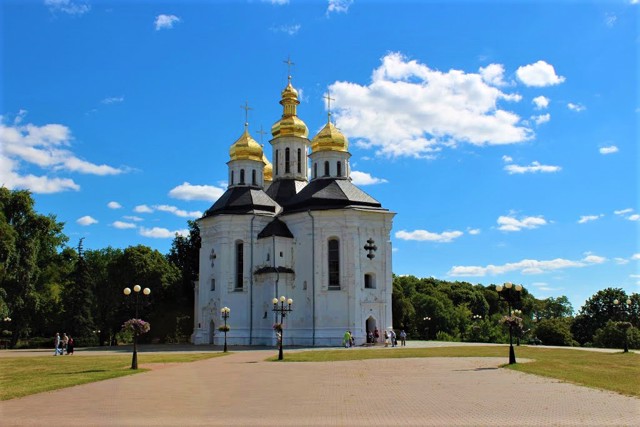
Cathedral of the Holy Great Martyr Catherine (Catherine Church)
Temple , Architecture
The Cathedral of the Holy Great Martyr Catherine solemnly greets everyone who enters Chernihiv from the Kyiv side, it is considered a symbol of the city. It is located on the opposite hill from Dytynets, on the Alley of Heroes.
The temple in the Ukrainian Baroque style was built on the site of an ancient temple from the period of Kyivan Rus at the expense of the brothers Semen and Yakiv Lyzohub, according to the will of their father Yukhym Lyzohub in memory of the heroism of their grandfather Yakiv Lyzohub and the Cossacks of the Chernihiv regiment, shown by them during the storming of the Turkish fortress of Azov.
During the Soviet times, the Catherine Church was closed, and during World War II it was damaged by fire. In 1975-1980, the church was restored, and inside it was placed an exhibition of the Museum of Folk and Decorative Art of the Chernihiv Region as part of the National Reserve "Ancient Chernihiv".
In 2004-2005, the church was restored. In 2006, the Catherine Church was transferred to the Cossack Orthodox community of Chernihiv. Since 2008, it has been the Cossack St. Catherine Cathedral of the Chernihiv Eparchy of the Orthodox Church of Ukraine.
In 2009, the monument "Fighters for freedom and independence of Ukraine" was opened near the Catherine's Church.
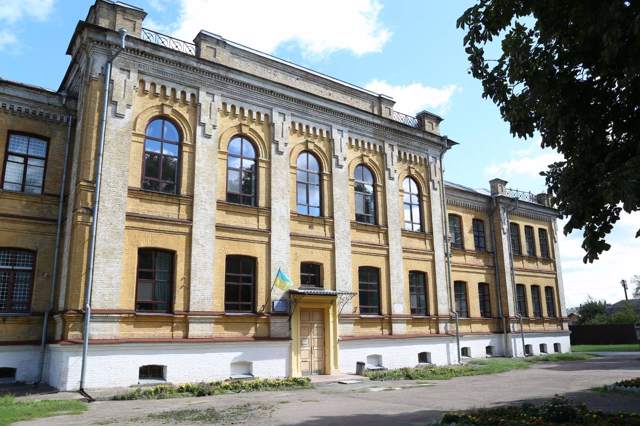
Chernihiv Regional Art Museum named after Hryhorii Galagan
Architecture , Museum / gallery
Chernihiv Regional Art Museum named after Hryhorii Galagan is located in the building of the former women's gymnasium (XIX century) on Chernihiv Rampart.
The museum`s collection includes about 8,000 works of fine and decorative arts, from the XVI century to the present. It was based on a unique collection of Ukrainian noble family Galagans, represented by works of Western European and domestic art of XVII-XIX centuries, folk paintings, including the famous Cossacks Mamai, portraits of eight generations of this famous Cossack family and their relatives - Rozumovsky, Lamsdorf, Darahan, Markevych.
The Chernihiv Art Museum has a collection of works by the outstanding Ukrainian folk artist Mariya Prymachenko. Works of decorative and applied art of Ukraine, a folk toy are also presented.
During the Russian invasion of 2022, when the city of Chernihiv was under fire, the Chernihiv Art Museum named after Hryhoriy Galagan was damaged, in particular, some exhibits were damaged.
Chernihiv in news and blogs
Reviews Chernihiv
Geographical information about Chernihiv
| {{itemKey}} | {{itemValue}} |
|---|---|
| Region |
Chernihiv |
